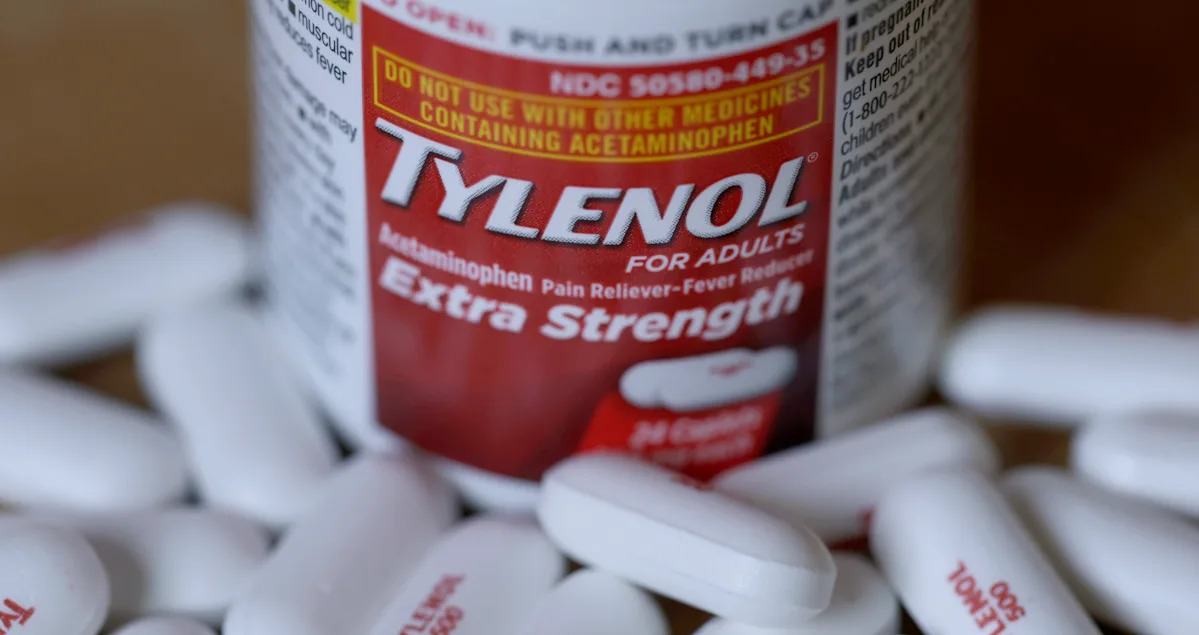A clear majority of Americans (69%) agree that “autism is a complex condition that cannot be reduced to a single cause,” according to a new Yahoo/YouGov poll.
This number includes 59% of Republicans.
And yet last week President Trump stated that his administration “found the answer to autism” – then linked neurological disorder to Tylenol and other acetaminophen-based painkillers during a high-profile event with the Secretary of Health and Human Services Robert F. Kennedy Jr. (The Yahoo/YouGov poll was conducted from September 25 to 29, shortly after the event.)
“Don't take Tylenol. Don't take it. Fight like hell not to take it,” the president told pregnant women. Instead, he encouraged them to “endure” when they are in pain.
At the same time, Kennedy continued to promote The completely debunked claim that childhood vaccines cause autismstating that there will be “no taboos” in future research.
“One of the areas we are looking closely at is vaccines,” Kennedy said. “We will be uncompromising and relentless in our search for answers.”
“There’s something artificial here,” Trump added. “They're taking something.”
But while a new Yahoo/YouGov poll of 1,676 American adults shows some openness to the idea that “autism rates are rising largely because of something that children are exposed to”—41% say they agree, 31% say they disagree and 28% are unsure—most Americans don't accept explanations for autism for one reason. For example:
-
Only 17% agree that “vaccines cause autism”; 56% disagree and 26% are unsure
-
Only 15% agree that “Tylenol and other drugs containing acetaminophen cause autism”; 49% disagree and 36% are unsure
-
Only 3% “strongly” agreed that Tylenol and other acetaminophen-based painkillers cause autism.
As a result, relatively few Americans (25%) say they discourage pregnant women from taking Tylenol. Most say they would either encourage the practice (16%) or remain neutral (48%).
What does science say?
Half a century of research shows that autism spectrum disorder is “a complex neurodevelopmental condition that results from a combination of genetic and environmental influences.” Scientific American recently stated this.. Most public health officials attribute the rising rates to a broader definition of the disease and increased screening and awareness, rather than to any toxin.
Recent studies have reached conflicting conclusions regarding acetaminophen. In August, BMC Environmental Health magazine published review of existing studies — including six studies of the link between prenatal acetaminophen use and the risk of ASD in children — that aimed to find “strong evidence of an association” between the drug and the disorder.
The article was co-authored by Dr. Andrea Baccarelli, dean of the Harvard T.H. School of Public Health. T.Ch. Chan, and ultimately recommended “judicious use of acetaminophen—lowest effective dose, shortest duration—under medical guidance, based on individual assessment of risk and benefit.”
Last week, the Food and Drug Administration published new official guide repeating this recommendation. “The precautionary principle may lead many to avoid using acetaminophen during pregnancy, especially since most low-grade fevers do not require treatment,” FDA Commissioner Marty Macari said in a statement. “However, it is still prudent for pregnant women to use acetaminophen in certain scenarios.”
More big study 2024The study, which looked at almost 2.5 million people born in Sweden between 1995 and 2019, concluded that “acetaminophen use during pregnancy is not associated with the risk of autism in children.”
Instead, according to the American College of Obstetricians and Gynecologists, said in a statement last week“the conditions that people use acetaminophen to treat during pregnancy are far more dangerous than any theoretical risks” posed by the drug itself.
Do Americans trust the medical advice of Trump and RFK Jr.?
During last week's event, Trump did not provide any new evidence to support his administration's new recommendations.
“I've always had very strong feelings about autism, how it came about and where it came from,” the president insisted. “We understood a lot more than a lot of the people who studied it.”
However, polls show Americans are hesitant to heed Trump's medical advice. Fully 64% said they would not trust such advice “at all”; another 10% say they would trust it only “a little.” Only 6% said they have “very much confidence” in the president’s medical advice.
Even half of Republicans (50%) say they would trust Trump's medical advice only a little or not at all.
Kennedy's confidence figures are similar: 66% “not at all”; 12% “a little”; only 8% – “excellent”.
The administration's recent statements on Tylenol and autism also coincide with a negative shift in Kennedy's favorable ratings. In August, 40% of Americans had a positive view of Kennedy; 46% had a negative attitude towards him. Today these figures are 36% and 49% respectively.
__________________
The Yahoo poll was conducted by YouGov using a nationally representative sample of 1,676 American adults surveyed online from September 25 to 29, 2025. The sample was weighted by gender, age, race, education, turnout in the 2024 and presidential elections, party affiliation, and current voter registration status. Demographic weighting targets are from the 2019 American Community Survey. Party identification is weighted by the estimated distribution at the time of the election (31% Democrats, 32% Republicans). Respondents were selected from YouGov volunteers to represent all American adults. The error is approximately 3%.








